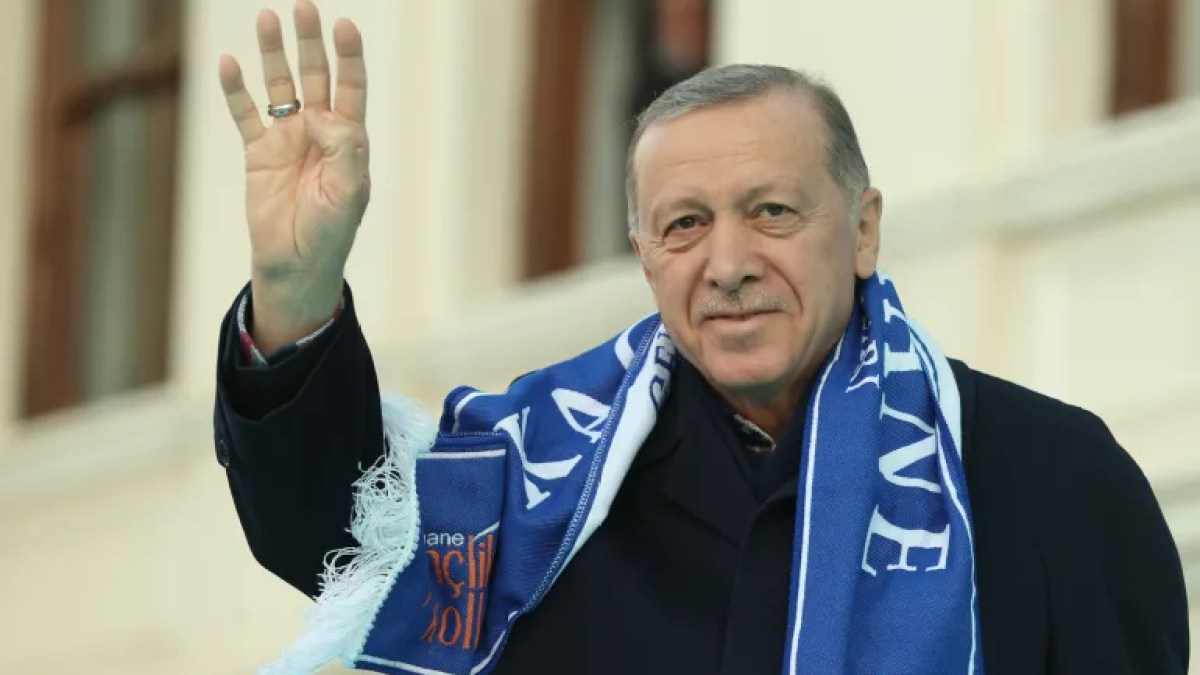On May 28, Turkey is preparing for a run-off in the presidential election between President Recep Tayyip Erdogan and his opposition rival Kemal Kılıçdaroğlu. Erdogan looks better positioned to win a third term, but Kılıçdaroğlu is still resisting by wrestling with windmills.
However, a new political reality emerged in Turkey after the May 14 elections: Erdogan is close to adding another 5 years to two decades in power and that the opposition, at its full potential, seems powerless to come to power. Opposition leaders can certainly believe that they denied Erdogan the presidency in the first round, but they have in no way been able to create a new reality radically different from the one that prevailed before the May 14 elections.
How can a leader whose image among nationalists has been shaken by Kılıçdaroğlu's politics convince 3% of opposition nationalists to support Kılıçdaroğlu in the run-off?
There are two key factors helping Erdogan in the runoff:
- No,Erdogan had a nearly 5-percentage point lead over Kılıçdaroğlu in the first round, making it difficult for the latter to reverse the electoral tide in his favor in the run-off. Although it has just struck a deal with the ultra-nationalist Victory Party, the gains it can get in numbers will not exceed the 2.4% maximum that the party obtained in the parliamentary elections. Moreover, by adopting a hardline nationalist approach to attracting ultra-nationalist votes, Kılıçdaroğlu may lose the votes that supported him in the first round. The Kurdish bloc, for example, gave it about 8 percent of the vote in the first round, but it is unclear how it will maintain this bloc after the Nasr Party promised to stick to the policy of guardianship of municipalities whose heads were dismissed because of their links to the outlawed Kurdistan Workers' Party (PKK). The Kurdish HDP may tolerate this hardline nationalist psyche for electoral needs, but it is uncertain that it will be able to convince the entire Kurdish bloc to vote for Kılıçdaroğlu.
- Second, the ruling coalition was able to win a majority in the new parliament, giving Erdogan a strong advantage in the run-off that is the factor of political stability. To be sure, less than 51% of Turks did not support Erdogan in the first round, either because the bulk wanted political change or because the other part (5.17% obtained by the candidate of the ancestral alliance) did not support neither Erdogan nor Kılıçdaroğlu. But some of these votes may be thought a thousand times before casting their vote in the runoff.
Will Kılıçdaroğlu elect and risk a new authority in which the presidency and parliament are battling? Or is Erdogan elected to ensure political stability? The many political experiences in Turkey prove that the majority of voters prefer political stability over anything else, because they want a stable authority that addresses their urgent priorities, especially the economy. Kılıçdaroğlu may be the best for them to run the economy, but he is powerless to overcome the new fact that he will be powerless in making political stability, because the opposition has lost in parliament.
One surprise from the May 14 elections was that the candidate of the "Ancestors" alliance, Sinan Ogan, received just over 5% of the vote in the first round. Of course, Ogan was unable to cross into a run-off, but the position of hard-line nationalist voices in the run-off is of great importance. This bloc is now divided between Erdogan and Kılıçdaroğlu.
A conclusion to draw from this dispersion is that Kılıçdaroğlu's chances of winning the presidency have become almost impossible, because he needs all the votes of this bloc in order to improve his chances. One of the major weaknesses of Kılıçdaroğlu's management of the electoral competition was that he could not accurately balance his alliance with the Kurdish Peoples' Democratic Party (HDP) with limiting the losses of nationalist votes in the Six-Party Alliance. Even if this budget is based on the language of calculations, it contradicts the language of politics because Kılıçdaroğlu's 8% of the Kurdish vote did not enable him to win in the first round and also because the 3% of the nationalist votes he lost deprived him of superiority in the first round and made the task very difficult for him in the run-off.
President Recep Tayyip Erdogan has proven that he is still stronger than the opposition believes. He faced 3 fierce rivals in this election: high inflation, the fallout from a devastating earthquake and opposition unity. But part of Turkey's new political reality was shaped by the opposition itself, as its management of party alliances and the budget process caused its poor electoral performance on May 14.
For example, when Kılıçdaroğlu forcibly imposed his candidacy for the presidency at the six-party table, he thought that the defeat of opposition nationalist leader Meral Aksener would help him force her to accept his alliance with the Kurdish People's Party (HDP). If there is one hope for Kılıçdaroğlu to attract nationalist votes against him, it is Miral Aksener.
However, how can a leader whose image among nationalists has been shaken by Kılıçdaroğlu's politics be able to convince 3% of opposition nationalists to support Kılıçdaroğlu in the run-off? The fact that nationalism rose from the May 14 elections reinforced a pre-election belief that Kılıçdaroğlu's alliance with the Kurdish People's Party would backlash.

